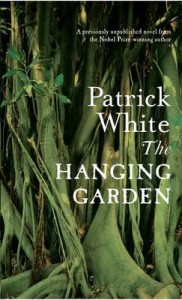 Title: Dark Matter (Goodreads)
Title: Dark Matter (Goodreads)
Author: Michelle Paver
Published: Orion, 2010
Pages: 256
Genres: Gothic, Historical Fiction, Horror
My Copy: Library Book
Buy: Amazon, Book Depository (or visit your local Indie bookstore)
Dark Matter by Michelle Paver is a slow burning ghost story; slowly the tension builds and builds until… The story kicks off on 7th January 1937, the first entry being written in the journal of Jack Miller who is preparing for an expedition to Gruhuken. This uninhabited location in Arctic is the back drop of this chilling story, the atmosphere and solitude all playing a role in building the tension within this story. The relationship between Jack and his companions Gus, Algie, Hugo and Teddy are one of the key aspects that hold this book together.
It’s really hard to review a book like this as I don’t want to give too much of this book away, but I’ll try my best. The story was a very basic one, the isolations, feeling of being completely alone works rather well in the book. The plot and surroundings all slowly build the tension that Jack is feeling. I started off reading this book feeling a little distracted but the further I got in the book the more absorbed in the story I found myself. It’s one of those books you want to read on a cold winter night; the snow outside and nothing but the creaking of the house to keep you company. Unfortunately it never snows and never gets cold here but I can just imagine reading this book in that situation and enjoying it a lot more.
The novel is a well polished ghost tale, reminding me of the old gothic novels of the 19th century; building the tension and characters as you read. While it’s a short book it did a great job at capturing all the key elements to haunt the reader. I’m reminded a bit of The Turn of the Screw by Henry James and even to a less extent The Woman in Black by Susan Hill in the way they can build tension in such a short time. I really love the chilling gothic styles of a book like this, I would love to read some more books similar to this one and compare it to the ones I’ve already read. While I really enjoy this novel I can’t see myself rating this book higher than three and a half stars, but I can’t tell you what was missing in this novel.

 Title: All That I Am (
Title: All That I Am ( Title: Wolf Hall (
Title: Wolf Hall ( Title: The Hanging Garden (
Title: The Hanging Garden ( Title: Foucault's Pendulum (
Title: Foucault's Pendulum (